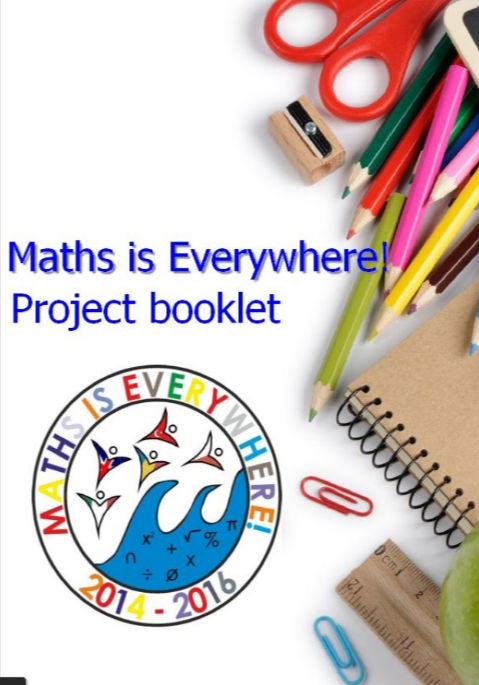Latest News:

VISIT OUR FACEBOOK PAGE:
MATHS IS EVERYWHERE
The importance of Mathematics has never been greater than now and in the foreseeable future. These skills are crucial for a wide array of analytical, technological, scientific and economic applications. Teaching students to become more adept in Maths and to appreciate its usefulness is of paramount importance for their future. Our partnership aims to increase the participants’ awareness of the importance of learning Mathematics and help them to acquire basic mathematical skills for the future. The project is especially for students with special needs and low attainers but also those disinterested and likely to drop out. Students will solve and create simple mathematical problems and will use ICT tools to present their achievements, share them with other partners and spread their ideas in their communities, regions and countries. Mathematics is an international language of signs and symbols recognised all over the world and will provide a good way to overcome language and social barriers. We aim to make the students more motivated to learn Mathematics and challenge the mathematical problems in their life. As a result, their understanding of Mathematics and skills in solving problems will have improved and their ICT skills will have been further developed too. In addition, the partnership activities are expected to implement a fun approach to teaching and learning in the participating schools.
WHAT THE EXPERTS SAY
– Feedback from the application process (121 out of 600 applications were successful)
EXPERT 1
The project has significant relevance because it aims to improve the attainment of pupils with low basic skills as well as having an impact on early school leaving. The proposed intention to focus on the use of ICT, language learning, intercultural learning and teacher professional development is also compatible with the Erasmus+ programme. The needs of the target groups are well understood as the schools have agreed to target students with low interest and attainment in Maths.
The project aims to exploit the potential of working in a transnational manner by developing intercultural awareness, reflecting on alternative pedagogy and utilising identified strengths.
All phases of the project have been addressed in detail and there is a clear timetable of activities for the duration of the project.
The project plans to build an effective communication process through a detailed agreement which will be monitored by coordinators. The eTwinning platform will be used extensively along with a various other electronic formats.
The monitoring arrangements have been considered in detail and will include base-line data for measuring progress. There is a good balance of qualitative and quantitative measures proposed as evaluation data.
There is an intention to ensure the views of all stakeholders are incorporated into project analysis with clear evidence of expected impact for students, teachers and institutions. Leadership teams and governors in all schools will receive regular progress reports about project development.
The project is likely to have a substantial impact on participants and their organisations and there is an expectation that the curricular and pedagogical changes made will endure after the project ends. It is also anticipated that the infrastructure created during the project will promote the longer term sustainability of the partnership.
Dissemination arrangements are detailed and well considered for the institutions and wider communities.
EXPERT 2
This is a well written, detailed and interesting project application, addressing key areas of under attainment and school dropout. It also covers, to a lesser extent, ICT, entrepreneurship and some language. There is a focus on teachers learning and the use of maths across the curriculum to support all learning. A particular strength is that the project is based on a sound identification of need and uses current research to support the work.
The application provides a detailed description of the way in which the project will be implemented. Activities are relevant and well thought out. There has been good preparation of the project, including the use of E- twining, and a range of participants including students has been involved in its design. Collaborative learning activities are relevant and motivating.
There is a clear plan for project management and some allocation of specific roles. Communication has been well thought out and planned. The evaluation strategy involving is excellent. Impact on a range of key players including teachers and the wider community is very well defined. Impact on students includes measures of the impact on attainment. There is a good dissemination strategy covering a wide range of audiences.
CONTACT US
Pendle Community High School & College
Pendle Vale Campus, Oxford Road, Nelson, Lancashire, BB9 8LF
Tel: 01282 682260
Headteacher: Debra Grogan
Chair of Governors: Trevor Ashton (Address c/o above)
Receptionist: Sophie McCamon
E-mail: reception@pchs.lancs.sch.uk
SENDCO: Stephanie Curtis
Email: scurtis@pchs.lancs.sch.uk
CONNECT WITH US
Paper copies of the information on our website can be requested via email.


